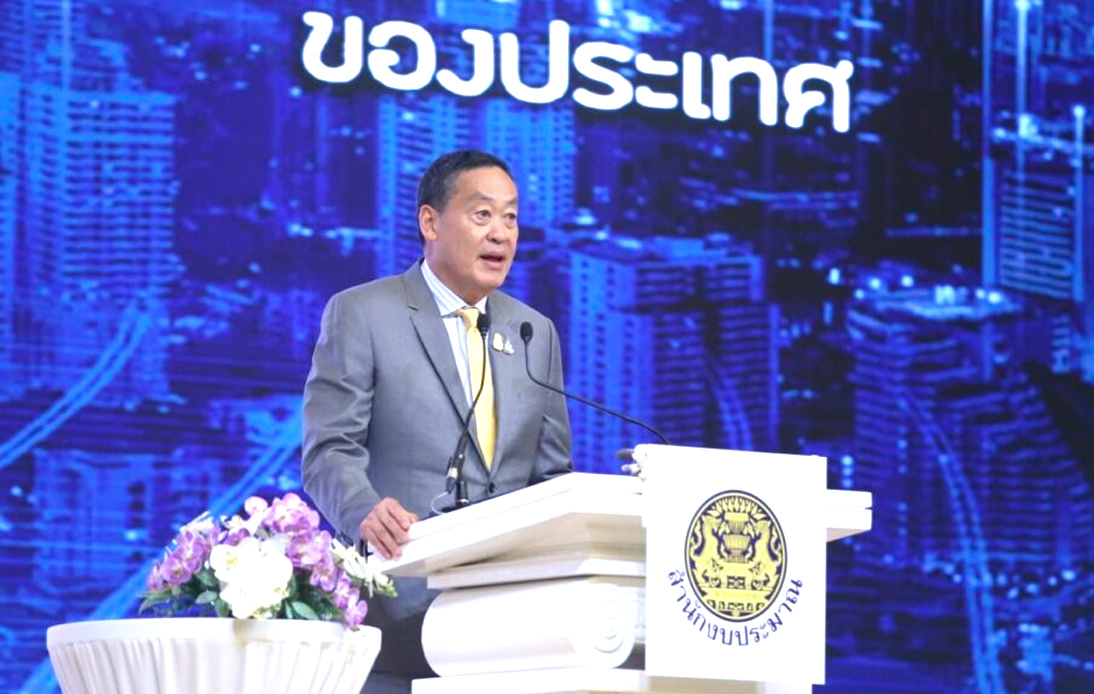
Prime Minister Srettha Thavisin’s cabinet, since its initiation nearly seven weeks prior, has encountered several challenges, putting its campaign promises to the test.
A critical mission involves repatriating thousands of Thai citizens caught in the turmoil in the Middle East, particularly the persistent conflict between Israel and Hamas.
Despite commitments to raise the standard daily wage to 400 baht this year and 600 baht within four years, this strategy may fall short in attracting Thais working overseas to return, given the higher wages outside their native land.
Consequently, Thailand is poised to maintain its reliance on workers from adjacent countries.
Mirroring the situation of Thai workers abroad, these foreign laborers are in pursuit of superior prospects in a different country to financially assist their families in their homeland.
There is speculation concerning the funding source for the proposed 10,000-baht digital wallet initiative, as experts highlight the potential long-term financial hazards depending on the financing methods employed.
Riddled With Doubt
CIMB Thai Bank’s chief economist, Amonthep Chawla, pointed out the lack of further insights into the digital handout, including how it will be financed, the nature of the digital currency, and the functionality of the digital wallet.
This absence of information prevents CIMBT from predicting the timely realization of the program, he remarked. The handout’s inauguration has been slated for the beginning of the coming year.
Amonthep emphasized the need for the government to promptly enlighten the populace and businesses on the digital allowance’s structure, anticipating its tentative execution in February.
Prioritizing comprehension and cultivating trust in the digital wallet initiative is crucial for its seamless introduction, he advocated.
“I believe most people want the digital cash handout of 10,000 baht, but I’m not sure whether merchants are willing to join the programme because they need to comply with the tax system,” Mr Amonthep stated.
“The government should encourage shops to register for the scheme and inform them about the plan during the initial stages.”
Should the program kick off in February 2024, it’s expected to bolster economic growth by 4% the following year, CIMBT projects.
Although the initiative could spur short-term consumption and economic support, the bank remains skeptical about sustaining a 4% economic surge in 2025 and 2026.
Pending more information, CIMBT reserves judgment on the program’s fiscal multiplier effect and its potential for prolonged economic growth.
Past populist agendas have typically given a temporary boost to domestic spending and GDP, he noted.
Amonthep remarked that while many groups advocate populist agendas during elections, only a few concentrate on economic restructuring for sustainable growth and enhanced long-term competitiveness.
With regard to the wage increase, the bank foresees timely policy enactment as it doesn’t necessitate substantial fiscal allocation, albeit contingent on tripartite consultations.
The proposed rise in the minimum daily wage could impact certain SMEs, necessitating governmental assistance through skill enhancement programs or potentially through subsidised loans for tech advancement and automation, he added.
Initial 100 Days
International economics consultant Aat Pisanwanich believes the current administration might achieve the wage hike this year, whereas the 10,000-baht digital bonus likely won’t materialize until after February 2024, surpassing the government’s initial 100 days.
Concerning the wage increase, Aat maintained its feasibility, citing no need for fiscal resources. Wage increasing is attainable through tripartite dialogues involving employees, employers, and the state.
Nonetheless, Montri Mahaplerkpong, vice-chairman of the Federation of Thai Industries (FTI), argued against any “interference” in the national wage committee’s proceedings.
He underscored the necessity for cautious deliberation on wage matters due to their profound implications for labor-centric enterprises.
Federation of Thai SMEs president Sangchai Theerakulwanich cautioned the government, referring to a past scenario where a minimum wage uptick led to widespread business shutdowns following a hike to 300 baht daily.
Skilled laborers currently earn above 300 baht daily, with certain sectors offering over 400 baht. However, unskilled labor continues at 300 baht daily, Aat highlighted.
“Migrant workers might benefit more from a wage surge compared to many Thai employees already earning above the base rate,” Montri asserted.
He advocated for wage structures based on skill levels, incentivizing skill development, potentially leading to increased productivity and foreign investment attraction.




















